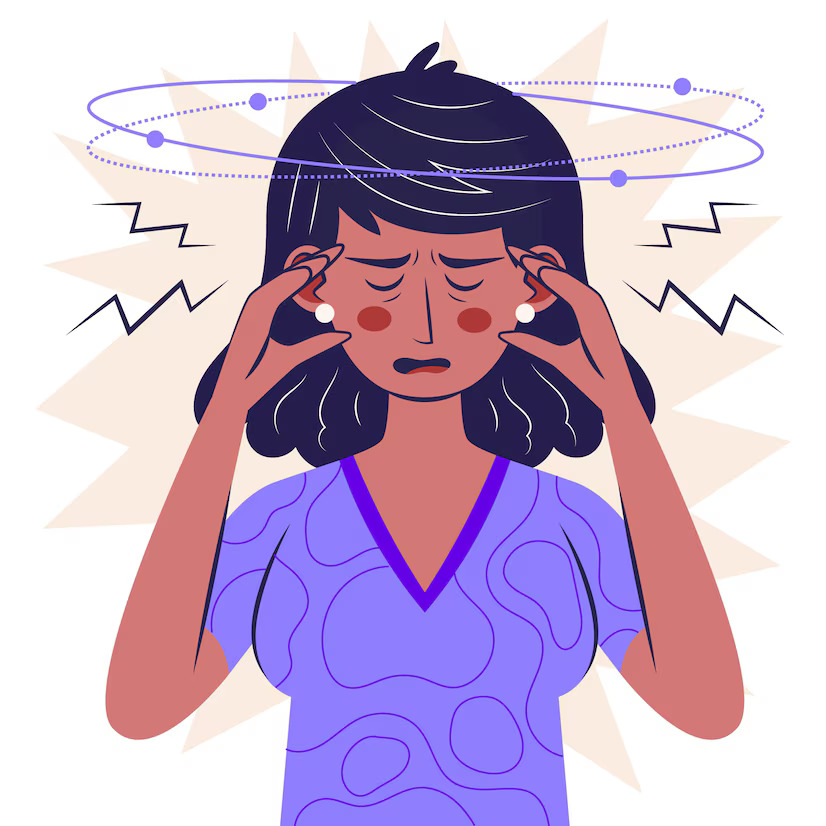Impulse Control Disorder (ICD) is a group of psychiatric disorders characterized by an inability to resist impulses or urges that can be harmful to oneself or others. Individuals with ICD may struggle with behaviors such as compulsive gambling, kleptomania (stealing), pyromania (setting fires), or intermittent explosive disorder (uncontrolled aggressive outbursts). These behaviors are often performed without forethought and can lead to significant personal, social, and legal consequences. The exact cause of ICD is not well understood, but it is believed to involve a combination of genetic, biological, and environmental factors.
What is an example Impulse control disorder
An example of an impulse control disorder is intermittent explosive disorder (IED). Individuals with IED experience sudden episodes of unwarranted anger and aggressive outbursts, which can manifest as verbal arguments, physical aggression, or destruction of property. These explosive reactions are disproportionate to the situation and often occur without any significant provocation. Despite feeling remorseful or embarrassed afterward, individuals with IED struggle to control their impulses.
What Are the Symptoms of Impulse Control Disorder?
With the support of the “online counseling “ and appropriate medication, impulse control disorder can be effectively managed.
-
Frequent Impulsive Actions: Repeatedly engaging in behaviors without considering the consequences.
-
Inability to Resist Urges: Difficulty resisting the urge to perform certain actions, even when they are harmful.
-
Aggressive Outbursts: Sudden and intense episodes of aggression or violence.
-
Compulsive Gambling: Persistent and uncontrollable urge to gamble, despite negative consequences.
-
Kleptomania: Compulsive stealing of items that are not needed or of little value.
-
Pyromania: Repeatedly setting fires for pleasure or relief from tension.
-
Excessive Risk-Taking: Engaging in risky activities without considering the potential dangers.
-
Impulsive Spending: Making large or unnecessary purchases without forethought.
-
Drug Abuse:– reckless drug or alcohol use that can develop into dependency or addiction.
-
Promiscuity: Engaging in risky sexual behaviors impulsively.
-
Intermittent Explosive Disorder: Episodes of extreme anger or rage that are disproportionate to the situation.
-
Self-Destructive Behavior: The inability to quit hurting oneself, such as cutting or burning oneself.
-
Lying or Deception: Frequently lying or deceiving others impulsively.
-
Trichotillomania: Compulsively pulling out one’s hair, resulting in noticeable hair loss.
-
Hoarding: Accumulating items impulsively and being unable to discard them, even when they are unnecessary.
-
Social and Occupational Impairment: Experiencing significant difficulties in social, academic, or work settings due to impulsive behaviors.
Recognizing these symptoms can help in seeking appropriate treatment, Impulse Control Disorder such as cognitive-behavioral therapy (CBT) and medication, to manage and reduce impulsive behaviors effectively.
How Does Impulse Control Disorder Impact Relationships?
If you or someone you know is struggling with this condition, it is crucial to seek professional assistance. Expert guidance Impulse Control Disorder “top psychologists in India,” and treatment can help individuals develop healthier coping mechanisms and improve their overall quality of life.
-
Trust Issues: Repeated impulsive behaviors, such as lying or stealing, can erode trust between partners or family members.
-
Emotional Distress: Loved ones may experience ongoing anxiety, fear, or frustration due to unpredictable behaviors.
-
Financial Strain: Impulsive spending or gambling can lead to financial difficulties, causing stress and conflict in relationships.
-
Communication Breakdown: Frequent impulsive actions can lead to misunderstandings and breakdowns in communication.
-
Increased Conflict: Impulsive behaviors often result in arguments and conflicts, straining the relationship.
-
Safety Concerns: Impulsive actions that involve aggression or risky behaviors can raise safety concerns for partners and family members.
-
Emotional Distance: Loved ones may withdraw emotionally to protect themselves from the turmoil caused by impulsive behaviors.
-
Loss of Respect: Repeatedly engaging in harmful impulsive actions can lead to a loss of respect from others.
-
Social Isolation: Impulse control issues can lead to social embarrassment, causing the individual and their family to become socially isolated.
-
Negative Role Modeling: Children or younger family members may be negatively influenced by witnessing impulsive behaviors.
-
Legal Issues: Impulsive actions like theft or aggression can lead to legal problems, further straining relationships.
-
Compromised Support Systems: Friends and extended family may distance themselves, leaving the individual with ICD and their immediate family with reduced support.
-
Caretaker Burnout: The burden of managing and mitigating the consequences of impulsive behaviors can lead to caregiver burnout.
-
Reduced Intimacy: Constant stress and conflict can reduce emotional and physical intimacy in romantic relationships.
-
Impact on Children: Children in the household may develop anxiety, depression, or behavioral issues as a result of the unstable environment.
-
Guilt and Shame: Both the individual with ICD and their loved ones may experience feelings of guilt and shame, further complicating the relationship dynamics.
conclusion
Addressing these impacts often requires professional help, including therapy for the individual with ICD and support for their loved ones to rebuild trust and improve relationship dynamics.




